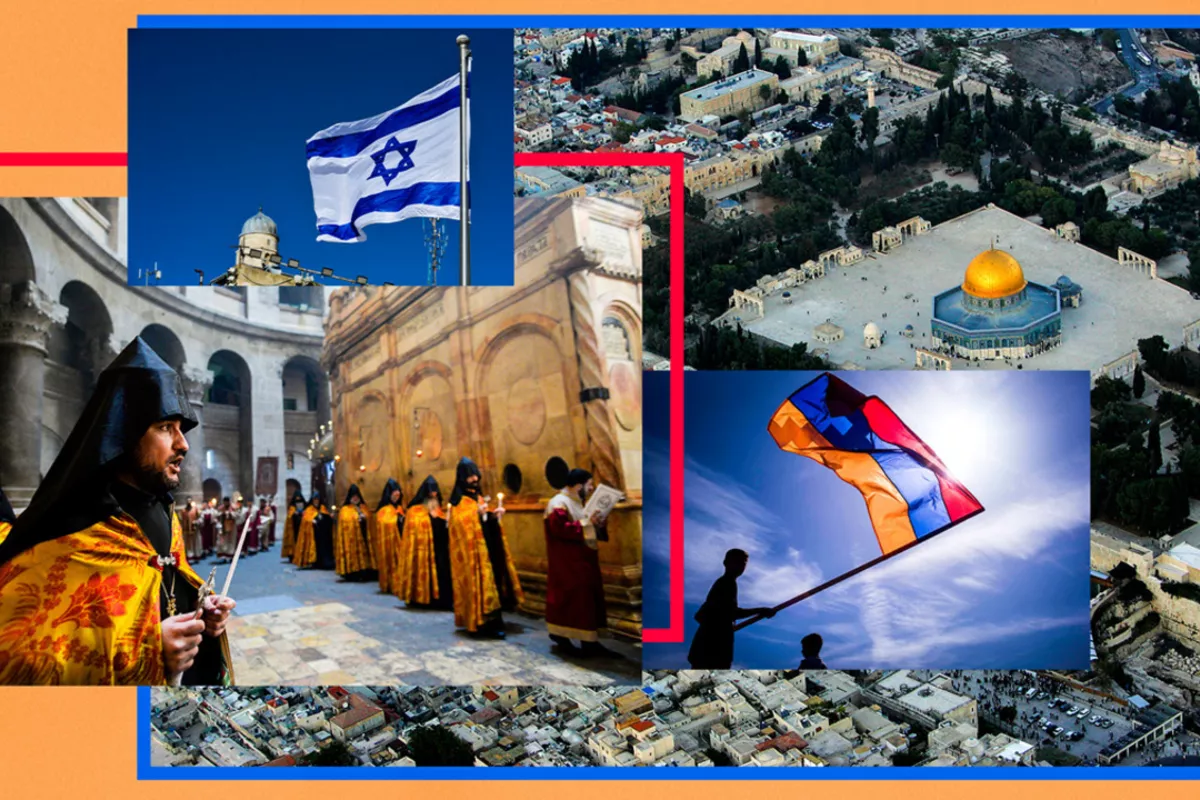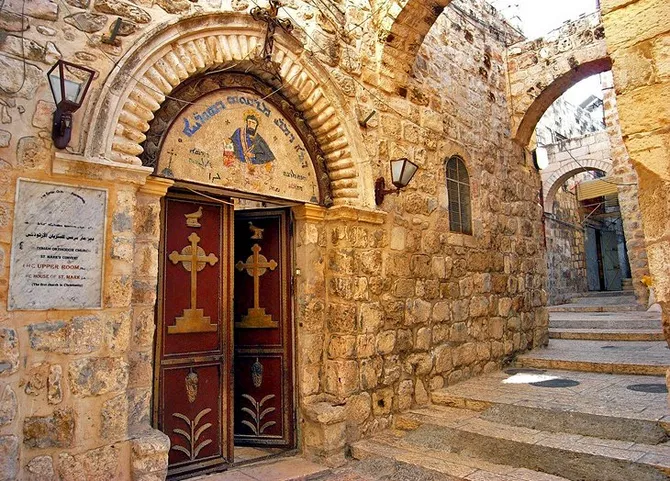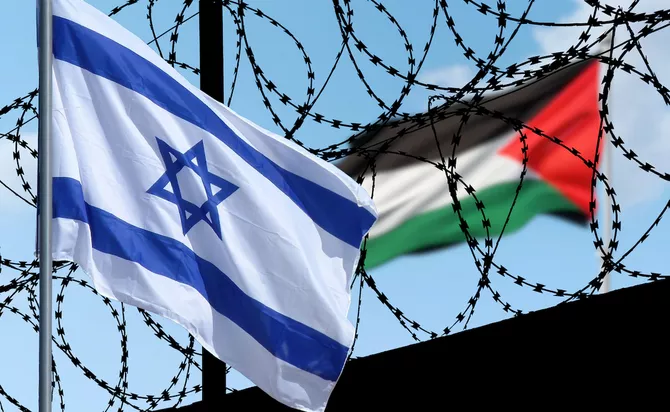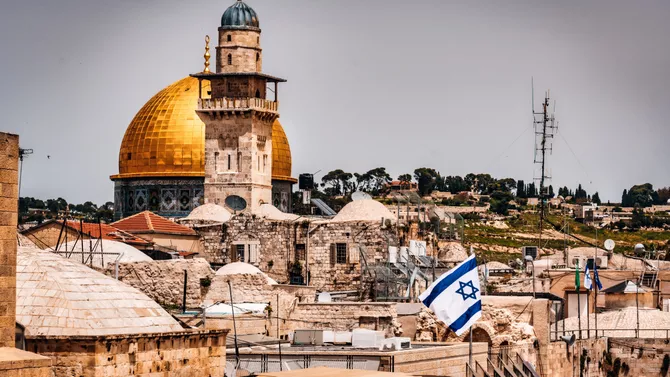
Photo credit: newarab.com
Tensions between Jews and Armenians in Jerusalem are once again on the rise. According to Armenian Telegram channels, several Jews were recently denied entry to the Cathedral of St. James, located in the Armenian Quarter of Jerusalem.
The reason, reportedly, was concern that ultra-Orthodox visitors might cause a disturbance. Those seeking to enter were informed that the church grounds are private property, strictly closed to outsiders.
This was reported by Gegham Balian, a representative of the so-called "Movement for the Salvation of the Armenian Quarter of the Old City." According to him, the Armenian community has felt increasingly uncomfortable in Jerusalem in recent years. Clashes with ultra-Orthodox Jews have become frequent. Just last week, another incident occurred: two Israeli individuals, Balian claims, showed disrespect toward the Armenian church. One passerby spat in the direction of the church entrance; a driver passing by then did the same. Armenians called the police, but the patrol reportedly arrived only 25 minutes later-believed by some in the community to be intentional. While spitting near a place of worship is clearly offensive, this type of incident is unlikely to receive immediate attention from law enforcement, as it lies more in the moral than legal domain.

St. Mark's Chapel | Photo credit: planetware.com
Tensions between the Jewish and Armenian communities are not new and are rooted in longstanding Armenian efforts to assert special rights on Israeli land. These claims were not taken seriously until a major controversy erupted in 2021 over a land lease approved by Archbishop Nourhan Manougian, head of the Armenian Church in Jerusalem. According to the agreement, part of the Armenian Quarter was leased for 98 years to a commercial company owned by a Jewish-Australian businessman. Residents of the quarter were unaware of the deal until the fall of 2023, when signs were posted identifying the new leaseholder.
Startled by the backlash, Manougian later claimed he would cancel the lease and that he had not fully understood what he had signed two years earlier. The developer, who planned to build a hotel on the leased plot, had already brought in bulldozers. Armenians began to protest and picket the construction site.
The issue remains unresolved, though it has faded somewhat amid the renewed Israeli-Palestinian conflict.

In reality, the problems said to be faced by Armenians in Jerusalem are not as grave as they are often portrayed. The Armenian community has a history of exaggerating its grievances and spreading misinformation. Most reports of attacks or physical assaults, when investigated, turn out to be unsubstantiated. Even a widely circulated claim that Jews tried to remove the Armenian flag from a church was never confirmed. At the same time, Armenian residents react negatively to the presence of Israeli flags in their quarter.
Another source of friction involves a municipal tax that Jerusalem authorities are seeking to collect from the Armenian Patriarchate-specifically, from those institutions under its control that generate income. City officials have warned that property may be confiscated if payments are not made. The Patriarchate has not paid rent taxes on the land it occupies since 1994. The Armenian defense argues that Christian churches have been tax-exempt in Jerusalem since Ottoman times.

Getty images
Both real and fabricated incidents are often presented by Armenian sources as attacks by ultra-Orthodox Jews against Christians. However, there is a separate Christian Quarter in Jerusalem where such conflicts are virtually nonexistent. This suggests that the root of the problem lies not in religious affiliation but in the distinctive behavior and posture of the Armenian community itself.
The Old City of Jerusalem is divided into four quarters: Jewish, Christian, Muslim, and Armenian. The Armenian Quarter is the smallest and least populated. While Armenians claim there are up to 2,000 Armenians living in the city, Israeli experts estimate that the real number is four times lower. Armenians assert that their presence in Jerusalem dates back to the 4th century, but historical records show that significant Armenian settlement began during the Crusades and solidified under the Ottoman Empire. Attempts to rewrite history and claim a deeper historical presence irritate the Israeli side-and not without reason.
Armenians are also frustrated by their lack of influence in Israel, unlike in some other countries. Their attempts to form a political lobby to push for recognition of the "Armenian genocide" have failed. Moreover, according to Armenian sources, Armenians are kept at a distance: they are rarely appointed to high-ranking positions or allowed to flourish in large-scale business. This too contributes to the shrinking of the community. Today, the church remains the primary anchor for the Armenian presence in Israel.
The Armenian community in Jerusalem is known for its insular lifestyle, strictly limiting access to its territory and projecting an image of autonomy. The aforementioned refusal to allow Jews onto church grounds reflects this tradition-not fear of provocations. It is part of a broader strategy to preserve cultural and religious identity.
The population of the Armenian Quarter continues to decline. The ongoing war-now in its second year-is accelerating this trend. With every flare-up of violence, the Armenian population shrinks further. Many community members do not hold Israeli citizenship, which may reflect a constant readiness to emigrate. Before the founding of the State of Israel, between 30,000 and 40,000 Armenians lived in the area. But when wars broke out, most chose to leave for more prosperous countries, unwilling to defend what they often call their "historical homeland." Armenian commentators frequently claim that Armenians "built Jerusalem"-yet have never shown willingness to defend it.
Share on social media